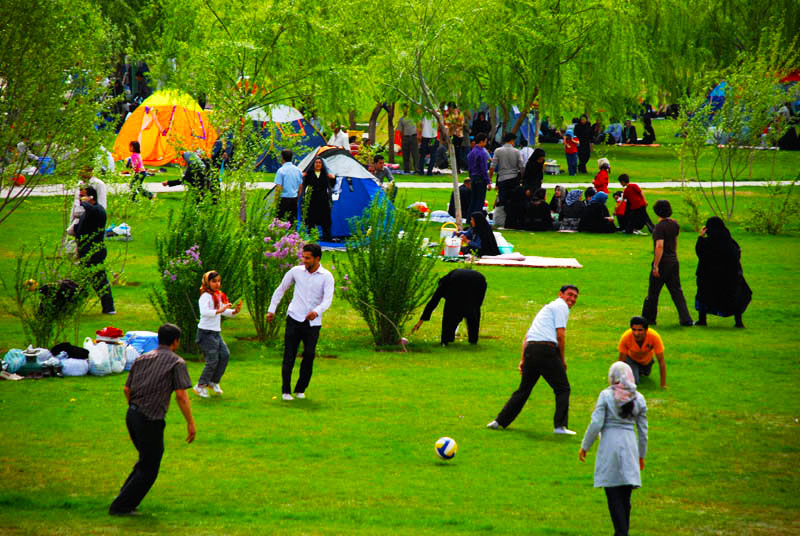 ''Sizdah'' means thirteen, and "-bedar'' outdoors. It is a tradition amongst the Iranian people to enjoy the fresh spring air of this day before ending the annual fortnightly holidays of the New Year, and to begin the work and education schedule.
''Sizdah'' means thirteen, and "-bedar'' outdoors. It is a tradition amongst the Iranian people to enjoy the fresh spring air of this day before ending the annual fortnightly holidays of the New Year, and to begin the work and education schedule.
Sizdah Bedar is the Persian festival of nature and is celebrated on the 13th day of the new year in the month of Farvardin (corresponding to April 2), the last day of the Nowruz period. This is the last phase of the New Year's celebrations which begins with the fire festival of Chaharshanbeh Soori of the Persian New Year. As Chaharshanbeh Soori is part of the traditions to welcome Nowruz, Sizdah Be-dar is one to escort the celebrations away. The first 12 days of the year hold special importance as they symbolize order in the world and in the lives of people. The 13th day marks the beginning of the return to ordinary daily life and inaugurates a happy new year.
The custom is to spend the day outdoors, in the parks or the countryside. It is believed that joy and laughter clean the mind from all evil thoughts and the picnic is a festive or happy event.
All kinds of food and delicacies are prepared with tea, sherbet, fruits, bread, cheese, fresh herbs, noodle soup called 'ash-e reshteh' and herbed rice with lamb called baqali polou and barreh are favorites.
The occasion is a communal one and all close relatives and friends will participate. Iranian families all eat alfresco, preferably near water springs and lush green spots on this day. In addition to Iran, Sizdah Be-dar is also among the festivals celebrated in Afghanistan, Tajikistan, Azerbaijan, India, and many other parts of the world.
Games using horse are often chosen since this animal also represents rain. Adults and older people may play the traditional game of backgammon.
During the picnic day of Sizdah Be-dar, some people also follow the oldest prank-tradition in the world and play jokes on each other. This has possibly led many men and women to consider that the origin of the April Fools' Day goes back to the Iranian tradition of Sizdah Be-dar.